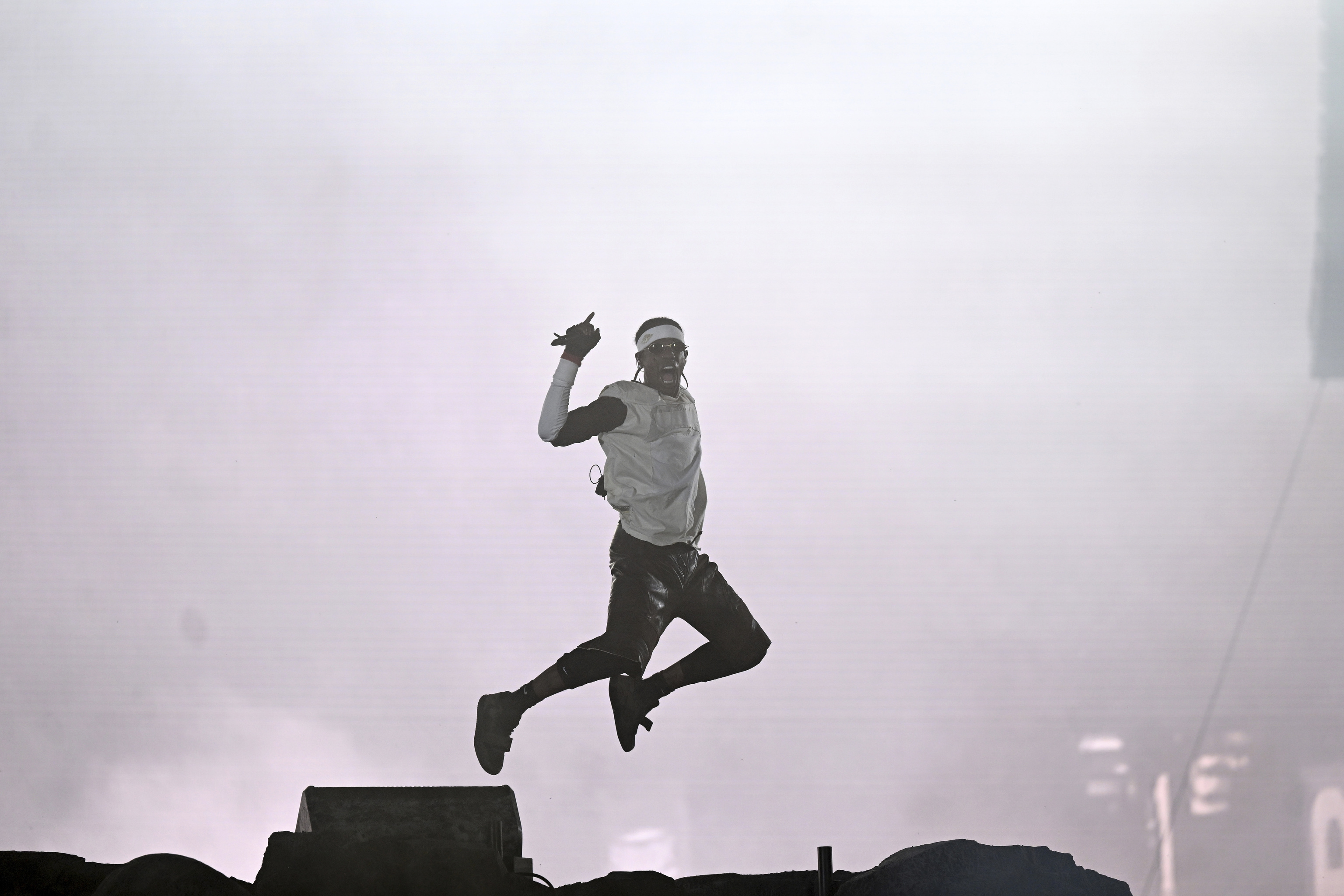After an hour of jumps and screams, after several hundred flames, fireworks, laser beams, and flashing lights intense enough to trigger a collective epileptic crisis among the 17,000 people gathered at the WiZink Center in Madrid, Travis Scott sang Fe!n over and over again. Not just the chorus, but the entire song. Five times. After finishing it, the rapper let the sweaty crowd howl for a few seconds and then started it all over again, met with thunderous applause.
Fe!n has a simple and repetitive structure, making it easy to turn into a pagan anthem to induce trance: the word "fiend" sung repeatedly, meaning demon, although in the street slang of some US cities, it can also refer to a drug addict, something not to be taken lightly as the Texan artist himself has often sung and talked about his fondness for opioid consumption.
But the concert completely lacked the effects typically associated with opioids. In his albums, Travis Scott's songs contain numerous psychedelic elements and could be seen as an analgesic against life's pains. Live, they are piñatas exploding over the heads of fans, a burst of 100% pure energy that triggers a constant succession of adrenaline rushes like a shower in an energy drink.
As nothing in this wild music is subtle or ambiguous, Travis Scott brought the hottest concert of the year to Madrid when the temperature outside was 37 degrees Celsius. Heat upon heat. The stage setup resembled a sick Disneyland or an apocalyptic video game. The stage extended along the arena with a central catwalk more inhospitable than Mount Doom from The Lord of the Rings. From that corridor of crumbling rocks like a lost paradise, columns of fire and smoke continuously emerged; in the background, a panoramic screen broadcasted the performance with a nervous and constantly moving production, with flickering images that repeated (everything repeats, everything pulsates, everything stuns like a magic trick).
The concert didn't start: it exploded, but instead of knocking down attendees, the explosion attracted them with an absorbing effect. Literally the entire audience started bouncing, the entire arena turned into a massive mosh pit, and it was impossible not to remember that at the first concert of this tour, a year ago at the Circus Maximus in Rome, the jumps of 60,000 attendees caused a 1.3 Richter scale earthquake.
The first three songs were the same as the opening tracks of Utopia, the latest album of the trap mega-star. Hyaena, Thank God, and Modern Jam followed in a dizzying 10 minutes. Scott's voice was excellent: with a comfortable flow and well-regulated bursts of intensity.
The devotion of his fans is understandable. The controversial artist turned the performance into a grand celebration with them, not above them, as evidenced when he brought four kids on stage to sing three songs with him. The entire concert was a fabulous simulation of rebellion and self-destruction, an energy release that can only be measured in megatons: a 90-minute escape passport to then land back into ordinary life. The real show of the night was that mass of youngsters obscenely seduced by chaos, eager to spend time acting silly shirtless and behaving like brainless fools, a perfectly understandable weakness at that age and many others.
Travis Scott's fourth album is the centerpiece of the Circus Maximus tour, which has arrived in Madrid after 58 performances in America and Europe. It was his first concert in the capital in a decade of meteoric career (the second in Spain, following his performance at the FIB festival in 2018); this Wednesday, he will perform again at the WiZink, gathering a total of almost 35,000 attendees in this intense live debut.
Songs devoured each other in very short performances, sometimes barely half a minute condensed. The sound volume was so high that it would have scared all the neighbors of the Bernabéu Stadium within a 500-meter radius: accompanied only by a DJ, the trap hero rapped over saturated and crackling bass, a tension that heated the sternum and made it vibrate like a drumhead.
Up to a dozen songs from Utopia resounded, while from his other three albums, he only performed six. In a show full of climaxes and with an extremely devoted audience, standout tracks included early singles like Nightcrawler, Mamacita, and Upper Echelon, and other songs like I Know?, with the crowd going wild, 90210, and especially Antidote and Goosebumps, generational anthems bubbling in the sports arena, all illuminated in red, like a disco in hell.
